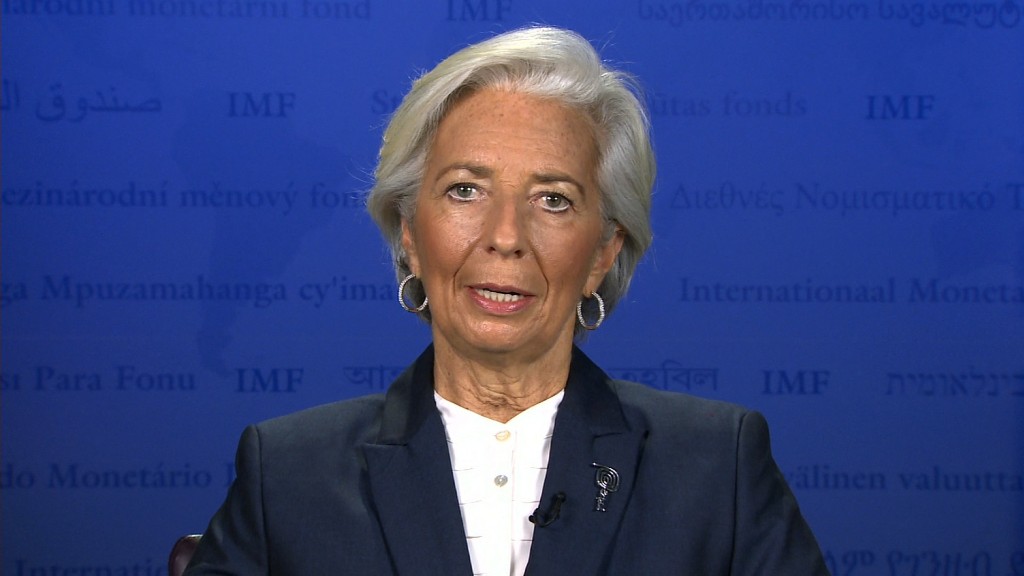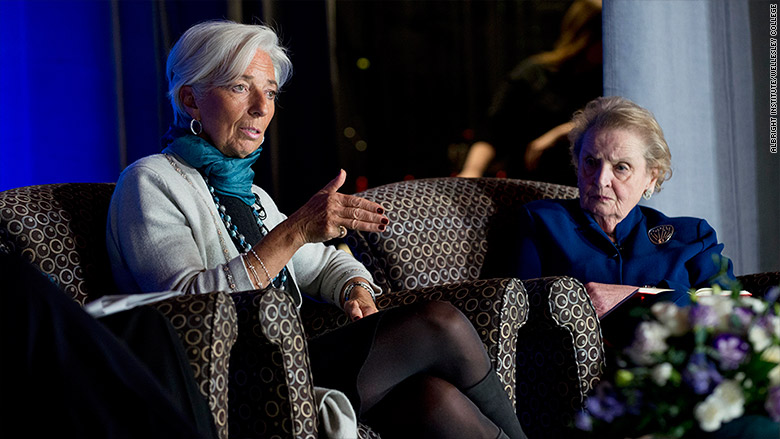
Want a stronger economy? Give women more opportunities says International Monetary Fund chief Christine Lagarde.
"Inequality is sexist," Lagarde said at a recent forum organized by the Albright Institute at Wellesley College.
Around the world, women still struggle to get an education, open bank accounts, own land and find paid work just because they were born female.
It's hurting economic growth, Lagarde argues. If women played an identical role in the work world to that of men, global growth would skyrocket by $28 trillion (over 25%) by 2025, according to consulting firm McKinsey.
That's a big number -- it's nearly equivalent to the U.S. and Chinese economies combined.

Related: Best companies for female executives
Women have a long way to go. Even in "advanced economies," women get paid less than men for doing the same job and having the same skills. and they still face barriers in the work world.
When President Obama took office in 2009, the wage gap in the U.S. was 77 cents to the $1. Now it's 79 cents, according to the latest government data.
"Calculate how long it will take to get to $1 each...80 years," says Lagarde, noting the world can't wait that long.
Getting more women into the workforce isn't just about equality, it's smart economics. Countries like Russia, Japan and the U.S. face a massive shortage of workers as Baby Boomers retire en masse.
Related: 10 reasons single women should be mad
How to fix the gender gap
Fixing the gender gap isn't that hard, experts believe. The road block is often old fashioned attitudes and laws.
In places like the U.S., Europe and Japan, Lagarde says the key is more affordable and accessible childcare, equal pay for equal work and tax policies that don't penalize the second earner in a family.
"The bottom line is it really revolves around some cultural changes," says Lagarde.
In many developing countries, women need even more basic rights such as the ability to own land or keep money in the bank under their own name.
Only 25% of women in developing countries have access to finance or a bank account, according to World Bank Managing Director Sri Mulyani Indrawati.
Related: Why women pay more than men for the same stuff
Peru: A success story
Lagarde holds up Peru as a good example of how a country can transform its economy for the better by empowering women.
In the 1990s, Peru changed its constitution to ban discrimination against women. The country has enjoyed an economic boom as women have joined the job market in much higher numbers. Less than half of Peruvian women worked in 1990. Now 68% of women are employed.
World leaders agree that gender equality and the empowerment of all women and girls is a top priority. It's one of United Nations' 15 Sustainable Development Goals to achieve by 2030.


